Unit 1 The lion and the mouse 第一课时 Story time 课件 (共39张PPT)
文档属性
| 名称 | Unit 1 The lion and the mouse 第一课时 Story time 课件 (共39张PPT) | 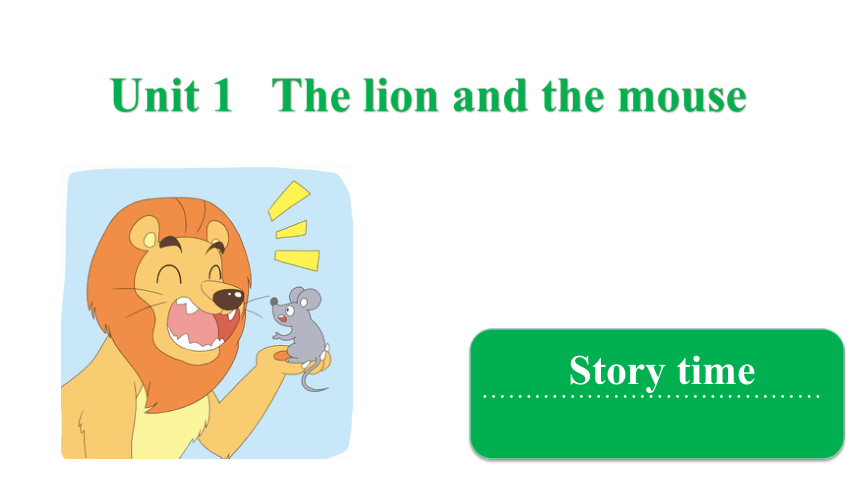 | |
| 格式 | pptx | ||
| 文件大小 | 4.3MB | ||
| 资源类型 | 教案 | ||
| 版本资源 | 牛津译林版 | ||
| 科目 | 英语 | ||
| 更新时间 | 2021-02-23 13:30:48 | ||
图片预览

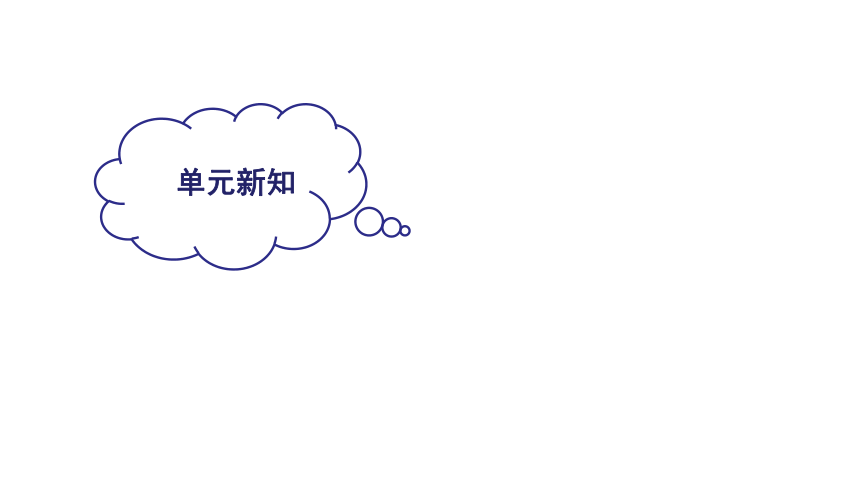
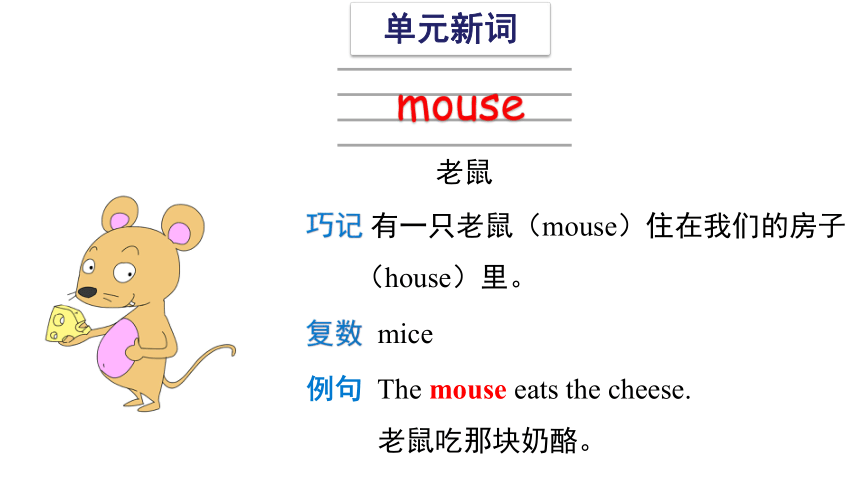
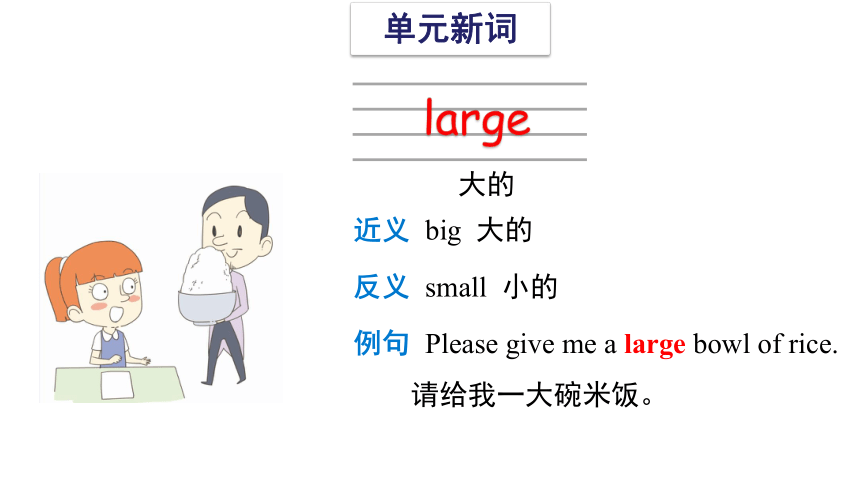
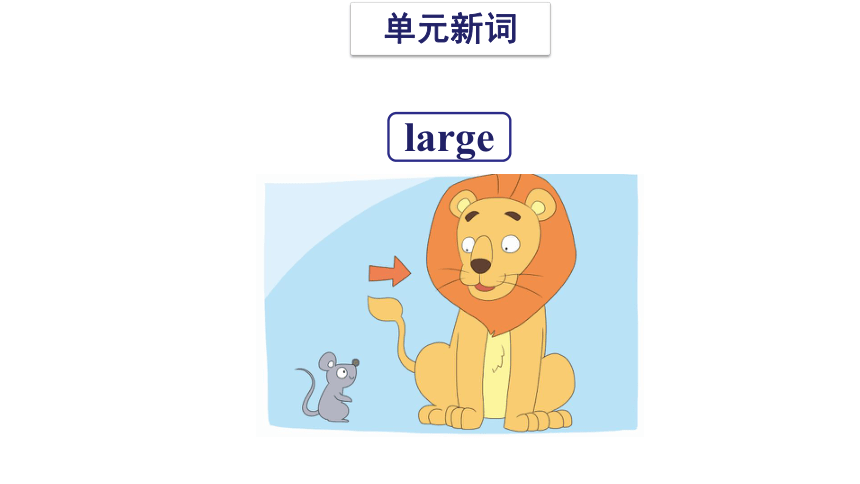
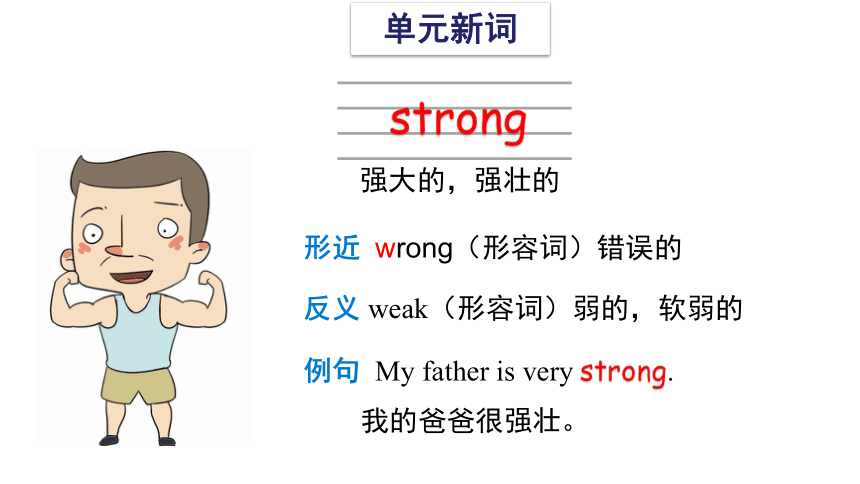
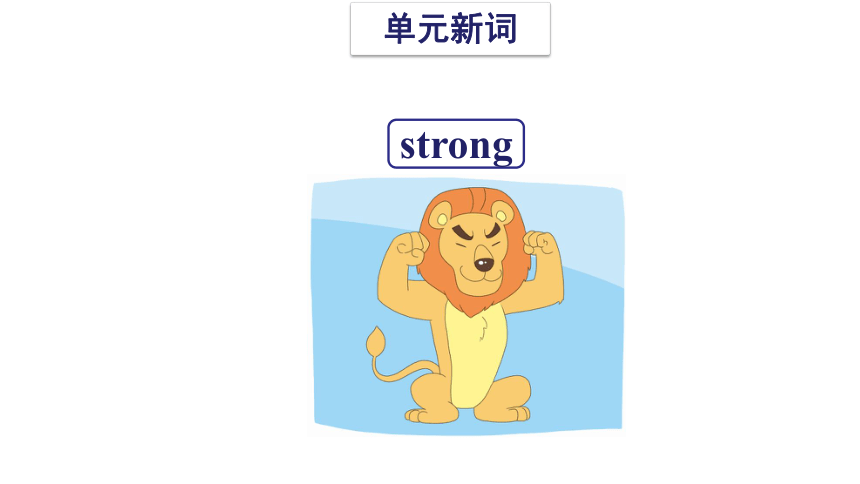

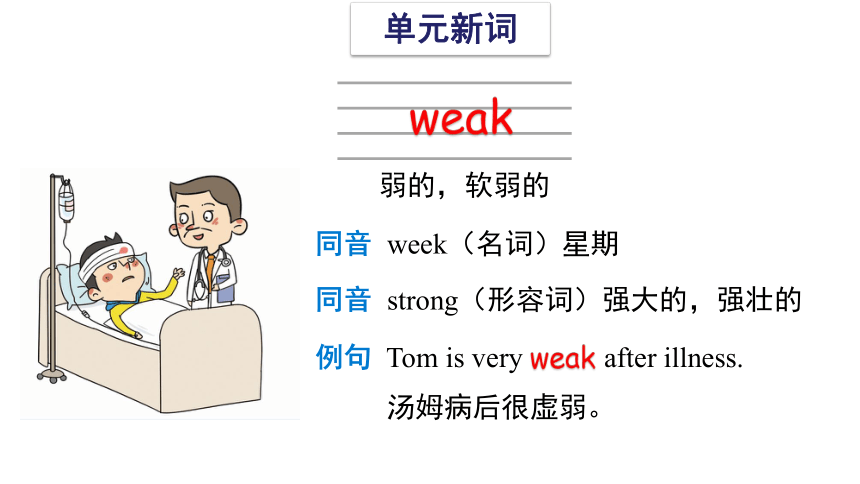

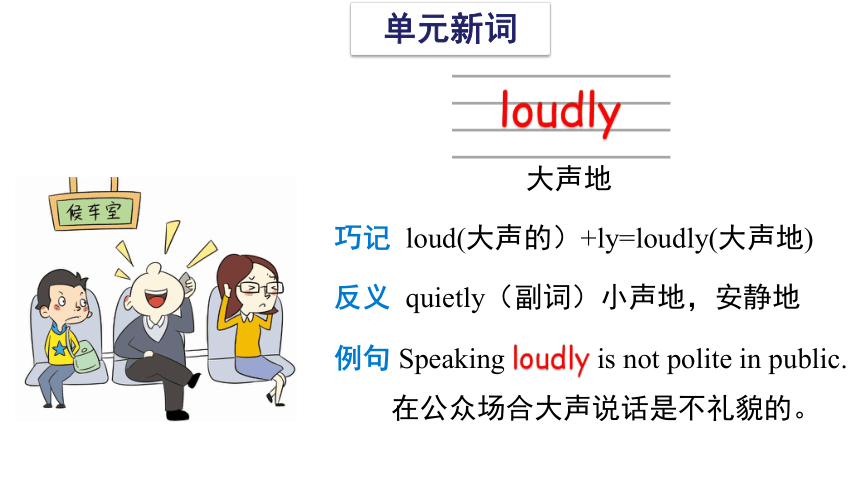
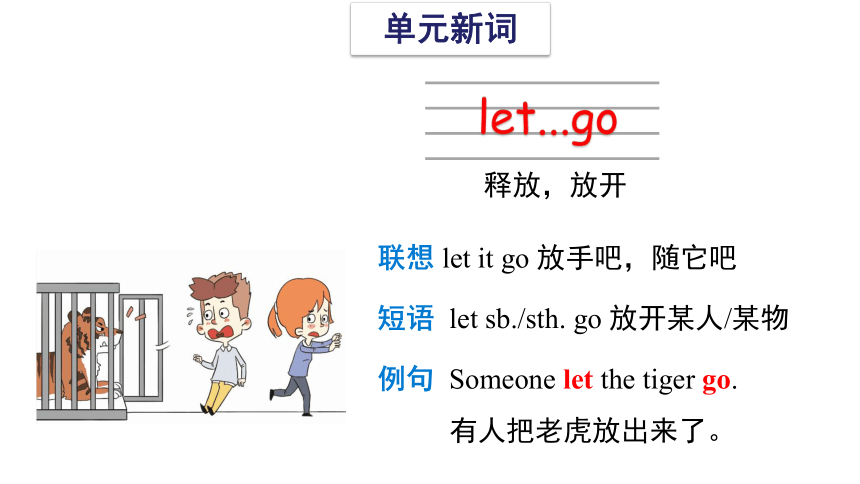
文档简介
Unit 1 The lion and the mouse
Story time
…………………………………
单元新知
mouse
老鼠
例句 The mouse eats the cheese.
老鼠吃那块奶酪。
单元新词
巧记 有一只老鼠(mouse)住在我们的房子
(house)里。
复数 mice
large
大的
近义 big 大的
单元新词
例句 Please give me a large bowl of rice.
请给我一大碗米饭。
反义 small 小的
单元新词
large
strong
强大的,强壮的
反义 weak(形容词)弱的,软弱的
单元新词
形近 wrong(形容词)错误的
例句 My father is very strong.
我的爸爸很强壮。
单元新词
strong
quietly
小声地,安静地
拓展 quiet(形容词)小声的,安静的
单元新词
近义 silently(副词)寂静地
例句 He followed his father quietly.
他悄悄地跟着他的爸爸。
weak
弱的,软弱的
同音 week(名词)星期
单元新词
同音 strong(形容词)强大的,强壮的
例句 Tom is very weak after illness.
汤姆病后很虚弱。
单元新词
weak
loudly
大声地
单元新词
巧记 loud(大声的)+ly=loudly(大声地)
反义 quietly(副词)小声地,安静地
例句 Speaking loudly is not polite in public.
在公众场合大声说话是不礼貌的。
let...go
释放,放开
联想 let it go 放手吧,随它吧
单元新词
短语 let sb./sth. go 放开某人/某物
例句 Someone let the tiger go.
有人把老虎放出来了。
net
网
联想 Internet(名词)互联网,因特网
单元新词
例句 The fisherman is catching fish with
the net. 渔夫正在用(渔)网捕鱼。
bite
咬
形近 bike(名词)自行车
单元新词
过去式 bit
例句 A dog bit her new dress.
一只狗咬了她的新连衣裙。
sharp
锋利的,尖的
形近 share (动词)分享
单元新词
拓展 sharply(副词)严厉地;急剧地
例句 The knife is too sharp.
这把刀太锋利了。
单元新词
sharp
sadly
难过地,伤心地
巧记 sad(难过的,伤心的)+ly=sadly
(难过地,伤心地)
单元新词
例句 The little boy is crying sadly.
这个小男孩儿正伤心地哭着。
just then
就在那时
联想 just now 刚才,刚刚
单元新词
例句 Just then , Amy found the key.
就在那时,埃米找到了钥匙。
soon
不久,很快
巧记 so(这样)+on(在……上)=soon
单元新词
形近 noon(名词)中午
短语 as soon as 一……就……
例句 It’s my birthday soon. 我的生日快到了。
happily
开心地,高兴地
近义 gladly(副词)高兴地
单元新词
反义 sadly(副词)难过地,伤心地
拓展 happy(形容词)开心的,高兴的
例句 He jumped up happily.
他高兴地跳了起来。
from then on
从那时起
联想 from now on 从现在起
单元新词
例句 From then on , they lived happily.
从那时起,他们幸福地生活着。
Story time
1
There was a lion in the forest. He was very large and strong.
Story time
2
One day, a mouse walked by and woke the lion up. The lion was angry and wanted to eat the mouse. “Please don’t eat me. I can help you some day, ” said the mouse quietly. “You’re so small and weak!How can you help me?” laughed the lion loudly.Then, he let the mouse go.
Story time
3
The next day, two men caught the lion with a large net. The lion bit the net with his sharp teeth, but that did not help.“How can I get out?”asked the lion sadly.
Story time
4
Just then, the mouse saw the lion. “I can help you,” he said. Soon, the mouse made a big hole in the net with his teeth. The lion got out. “Thank you!” said the lion happily.
Story time
5
From then on, the lion and the mouse became friends.
large
sharp
strong
weak
知识讲解
One day, a mouse walked by and woke the lion up.
1
用法:意为“走过,路过”,by 在此处作副词,意为“经过”。
1
walk by
例句:He walked by without speaking to me.
他没跟我说话就走过去了。
2
wake...up
用法:意为“吵醒,叫醒”。表示吵醒某人或 叫醒某人时,用 wake up sb.或 wake sb. up,如 果 sb.为人称代词,只能用 wake sb. up,且用人称代词的宾格形式。
例句:She wants to wake Tom up. 她想叫醒汤姆。
知识讲解
I can help you some day.
2
用法:some day 意为“某一天”,指将来的某一天,常用于 将来时态或表示将来意义的句子中。
some day
例句:We will grow up some day.
有一天我们会长大。
知识讲解
one day 也可以表示“有一天”。与 some day不同的是,one day 可以用来指将来,也可以用来指过去。
拓展: one day
知识讲解
The next day, two men caught the lion with a large net.
3
用法:the next day 意为“第二天”,表示已知某一天的 “第二天”,常用于过去时态的句子中;而 next day 相当于 tomorrow,常用于将来时态的句子中。
the next day
Read and order
a The lion caught the mouse.
b The lion and the mouse became good friends.
c The lion could not get out from the net.
d The mouse woke the lion up.
e The lion let the mouse go.
f The mouse helped the lion get out.
d
a
e
c
f
b
Ask and answer
Who woke the lion up?
The mouse(woke up the lion).
Ask and answer
Did the lion eat the mouse?
No, he didn't.
Ask and answer
How did the men catch the lion?
They caught the lion with a large net.
Ask and answer
How did the mouse help the lion?
He made a big hole in the net with his teeth.
Ask and answer
What did the lion and the mouse become?
They became good friends.
Story time
…………………………………
单元新知
mouse
老鼠
例句 The mouse eats the cheese.
老鼠吃那块奶酪。
单元新词
巧记 有一只老鼠(mouse)住在我们的房子
(house)里。
复数 mice
large
大的
近义 big 大的
单元新词
例句 Please give me a large bowl of rice.
请给我一大碗米饭。
反义 small 小的
单元新词
large
strong
强大的,强壮的
反义 weak(形容词)弱的,软弱的
单元新词
形近 wrong(形容词)错误的
例句 My father is very strong.
我的爸爸很强壮。
单元新词
strong
quietly
小声地,安静地
拓展 quiet(形容词)小声的,安静的
单元新词
近义 silently(副词)寂静地
例句 He followed his father quietly.
他悄悄地跟着他的爸爸。
weak
弱的,软弱的
同音 week(名词)星期
单元新词
同音 strong(形容词)强大的,强壮的
例句 Tom is very weak after illness.
汤姆病后很虚弱。
单元新词
weak
loudly
大声地
单元新词
巧记 loud(大声的)+ly=loudly(大声地)
反义 quietly(副词)小声地,安静地
例句 Speaking loudly is not polite in public.
在公众场合大声说话是不礼貌的。
let...go
释放,放开
联想 let it go 放手吧,随它吧
单元新词
短语 let sb./sth. go 放开某人/某物
例句 Someone let the tiger go.
有人把老虎放出来了。
net
网
联想 Internet(名词)互联网,因特网
单元新词
例句 The fisherman is catching fish with
the net. 渔夫正在用(渔)网捕鱼。
bite
咬
形近 bike(名词)自行车
单元新词
过去式 bit
例句 A dog bit her new dress.
一只狗咬了她的新连衣裙。
sharp
锋利的,尖的
形近 share (动词)分享
单元新词
拓展 sharply(副词)严厉地;急剧地
例句 The knife is too sharp.
这把刀太锋利了。
单元新词
sharp
sadly
难过地,伤心地
巧记 sad(难过的,伤心的)+ly=sadly
(难过地,伤心地)
单元新词
例句 The little boy is crying sadly.
这个小男孩儿正伤心地哭着。
just then
就在那时
联想 just now 刚才,刚刚
单元新词
例句 Just then , Amy found the key.
就在那时,埃米找到了钥匙。
soon
不久,很快
巧记 so(这样)+on(在……上)=soon
单元新词
形近 noon(名词)中午
短语 as soon as 一……就……
例句 It’s my birthday soon. 我的生日快到了。
happily
开心地,高兴地
近义 gladly(副词)高兴地
单元新词
反义 sadly(副词)难过地,伤心地
拓展 happy(形容词)开心的,高兴的
例句 He jumped up happily.
他高兴地跳了起来。
from then on
从那时起
联想 from now on 从现在起
单元新词
例句 From then on , they lived happily.
从那时起,他们幸福地生活着。
Story time
1
There was a lion in the forest. He was very large and strong.
Story time
2
One day, a mouse walked by and woke the lion up. The lion was angry and wanted to eat the mouse. “Please don’t eat me. I can help you some day, ” said the mouse quietly. “You’re so small and weak!How can you help me?” laughed the lion loudly.Then, he let the mouse go.
Story time
3
The next day, two men caught the lion with a large net. The lion bit the net with his sharp teeth, but that did not help.“How can I get out?”asked the lion sadly.
Story time
4
Just then, the mouse saw the lion. “I can help you,” he said. Soon, the mouse made a big hole in the net with his teeth. The lion got out. “Thank you!” said the lion happily.
Story time
5
From then on, the lion and the mouse became friends.
large
sharp
strong
weak
知识讲解
One day, a mouse walked by and woke the lion up.
1
用法:意为“走过,路过”,by 在此处作副词,意为“经过”。
1
walk by
例句:He walked by without speaking to me.
他没跟我说话就走过去了。
2
wake...up
用法:意为“吵醒,叫醒”。表示吵醒某人或 叫醒某人时,用 wake up sb.或 wake sb. up,如 果 sb.为人称代词,只能用 wake sb. up,且用人称代词的宾格形式。
例句:She wants to wake Tom up. 她想叫醒汤姆。
知识讲解
I can help you some day.
2
用法:some day 意为“某一天”,指将来的某一天,常用于 将来时态或表示将来意义的句子中。
some day
例句:We will grow up some day.
有一天我们会长大。
知识讲解
one day 也可以表示“有一天”。与 some day不同的是,one day 可以用来指将来,也可以用来指过去。
拓展: one day
知识讲解
The next day, two men caught the lion with a large net.
3
用法:the next day 意为“第二天”,表示已知某一天的 “第二天”,常用于过去时态的句子中;而 next day 相当于 tomorrow,常用于将来时态的句子中。
the next day
Read and order
a The lion caught the mouse.
b The lion and the mouse became good friends.
c The lion could not get out from the net.
d The mouse woke the lion up.
e The lion let the mouse go.
f The mouse helped the lion get out.
d
a
e
c
f
b
Ask and answer
Who woke the lion up?
The mouse(woke up the lion).
Ask and answer
Did the lion eat the mouse?
No, he didn't.
Ask and answer
How did the men catch the lion?
They caught the lion with a large net.
Ask and answer
How did the mouse help the lion?
He made a big hole in the net with his teeth.
Ask and answer
What did the lion and the mouse become?
They became good friends.
